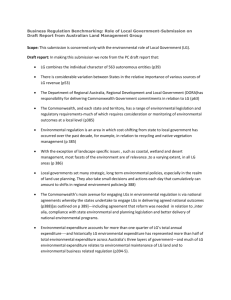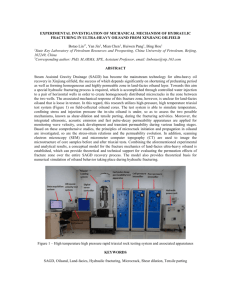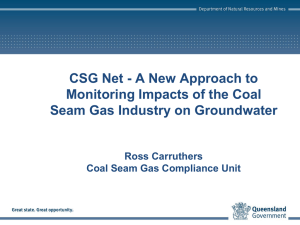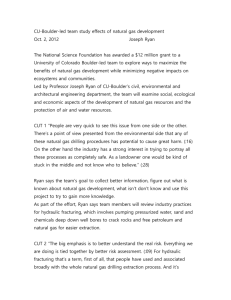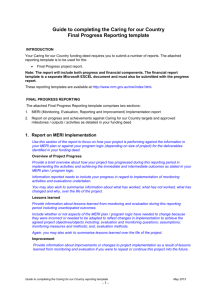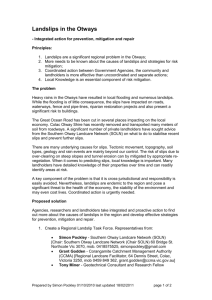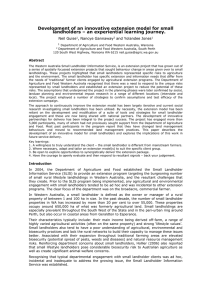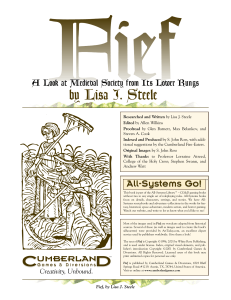Landholders-Rights-to-Refuse-Bill
advertisement
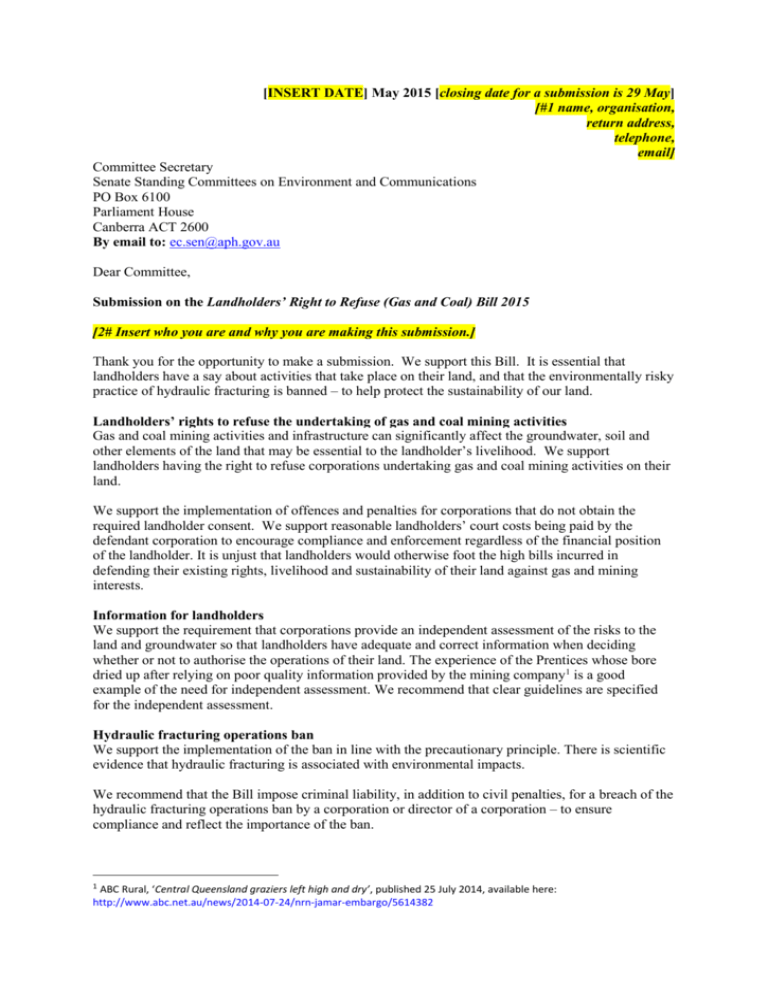
[INSERT DATE] May 2015 [closing date for a submission is 29 May] [#1 name, organisation, return address, telephone, email] Committee Secretary Senate Standing Committees on Environment and Communications PO Box 6100 Parliament House Canberra ACT 2600 By email to: ec.sen@aph.gov.au Dear Committee, Submission on the Landholders’ Right to Refuse (Gas and Coal) Bill 2015 [2# Insert who you are and why you are making this submission.] Thank you for the opportunity to make a submission. We support this Bill. It is essential that landholders have a say about activities that take place on their land, and that the environmentally risky practice of hydraulic fracturing is banned – to help protect the sustainability of our land. Landholders’ rights to refuse the undertaking of gas and coal mining activities Gas and coal mining activities and infrastructure can significantly affect the groundwater, soil and other elements of the land that may be essential to the landholder’s livelihood. We support landholders having the right to refuse corporations undertaking gas and coal mining activities on their land. We support the implementation of offences and penalties for corporations that do not obtain the required landholder consent. We support reasonable landholders’ court costs being paid by the defendant corporation to encourage compliance and enforcement regardless of the financial position of the landholder. It is unjust that landholders would otherwise foot the high bills incurred in defending their existing rights, livelihood and sustainability of their land against gas and mining interests. Information for landholders We support the requirement that corporations provide an independent assessment of the risks to the land and groundwater so that landholders have adequate and correct information when deciding whether or not to authorise the operations of their land. The experience of the Prentices whose bore dried up after relying on poor quality information provided by the mining company1 is a good example of the need for independent assessment. We recommend that clear guidelines are specified for the independent assessment. Hydraulic fracturing operations ban We support the implementation of the ban in line with the precautionary principle. There is scientific evidence that hydraulic fracturing is associated with environmental impacts. We recommend that the Bill impose criminal liability, in addition to civil penalties, for a breach of the hydraulic fracturing operations ban by a corporation or director of a corporation – to ensure compliance and reflect the importance of the ban. 1 ABC Rural, ‘Central Queensland graziers left high and dry’, published 25 July 2014, available here: http://www.abc.net.au/news/2014-07-24/nrn-jamar-embargo/5614382 Yours sincerely [#Insert your name and signature][If you are representing a group, please be explicit how you are authorised by the group to make the submission, e.g. If as secretary or president you are authorised to write submissions for the group.]

